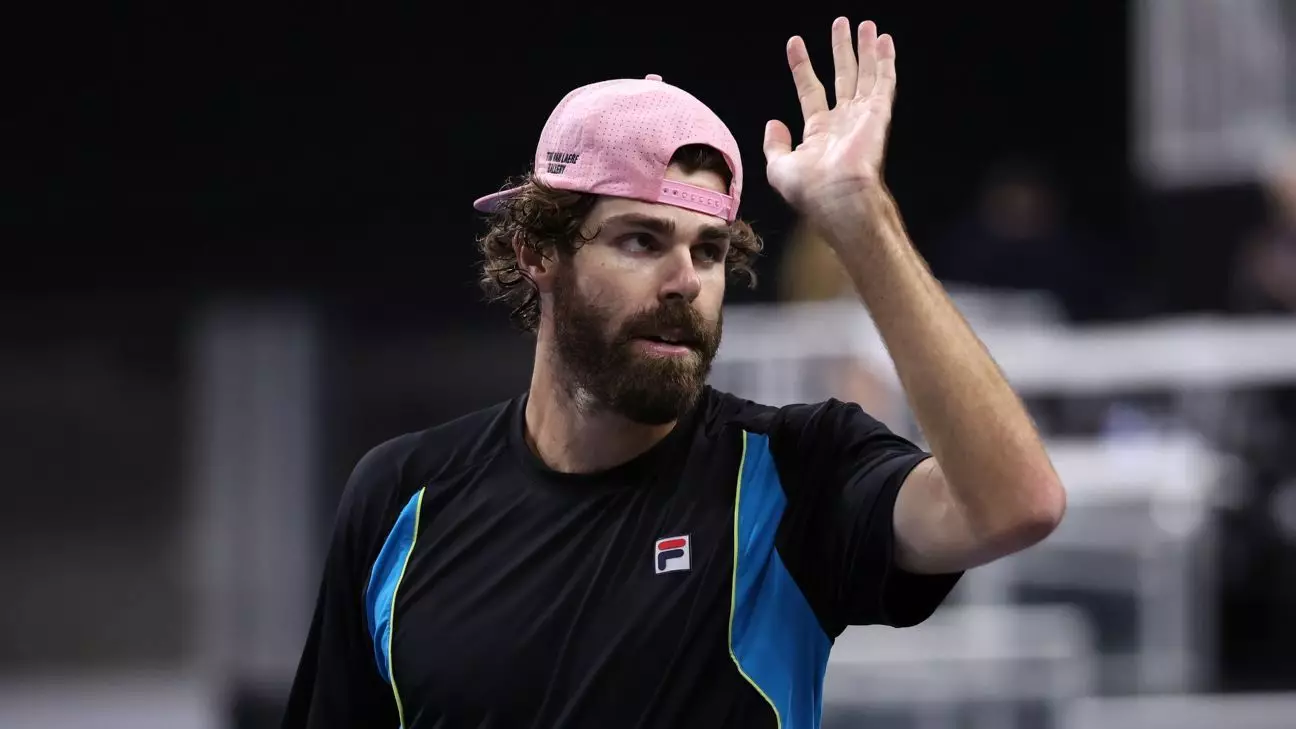Tennis is as much a game of mental fortitude as it is of skill. A recent incident at the Dallas Open exemplified the thin line professional athletes navigate between maintaining composure and expressing frustration. Reilly Opelka, a towering presence on the court with a powerful serve, found himself embroiled in controversy during his match against Cameron Norrie. The match reached a boiling point when Opelka confronted a spectator whom he believed was intentionally coughing to disrupt his serve. This moment, however, spiraled into a confrontation with the chair umpire, Greg Allensworth, that raises questions about officiating in professional tennis.
In the realm of competitive sports, officials are expected to uphold the integrity and smooth operation of the game. Opelka’s explosive reaction stemmed from what he perceived as a failure of Allensworth to fulfill this duty. As Opelka served for match victory, the interruption from the stands not only rattled his focus but also led to a code violation from the umpire, resulting in a significant point penalty stemming from Opelka’s audible frustrations. The ramifications of these calls can be severe, potentially influencing the outcome of tightly contested matches.
Opelka’s assertion that Allensworth was „the worst ref on the ATP,“ highlights his perception of systemic issues within officiating that could hinder players‘ performance. When players feel they cannot rely on referees to protect their ability to focus and play, it creates an atmosphere of distrust that affects not just individual matches, but the sport as a whole.
While Opelka ultimately emerged victorious, his post-match comments suggested a broader issue at play in ATP officiating. He requested that the ATP take action against Allensworth, emphasizing the need for accountability. The crux of Opelka’s argument is that an unprofessional officiating performance can have severe consequences, both in terms of match outcomes and player morale. He expressed his frustrations further by pointing out that even as he faces a potential $5,000 fine for his outburst, the umpire walks away unpunished for a potentially match-altering decision.
Such disparities in penalties raise questions about how the ATP enforces its rules and what measures exist to ensure the officials are equipped to handle high-pressure situations. Should umpires experience consequences for poor decision-making? Opelka’s situation may serve as a catalyst for a reevaluation of how officials are trained and assessed within the ATP framework.
As tennis continues to evolve, incidents like that of Opelka at the Dallas Open serve as reminders of the challenges faced within the sport. Players are under tremendous pressure to perform at their peak, and any disruption can lead to emotional responses that may be viewed as inappropriate or excessive. However, it’s vital to recognize that these frustrations arise from perceptions of fairness and integrity in officiating.
In the pursuit of preserving the dignity of the sport, tennis authorities must engage in self-reflection. Addressing player concerns about officiating standards will not only enhance the quality of the competition but also safeguard the integrity of the sport itself. Moving forward, the ATP must take steps to foster an environment where both players and officials can coexist productively, with mutual respect and accountability guiding their interactions.


Napsat komentář